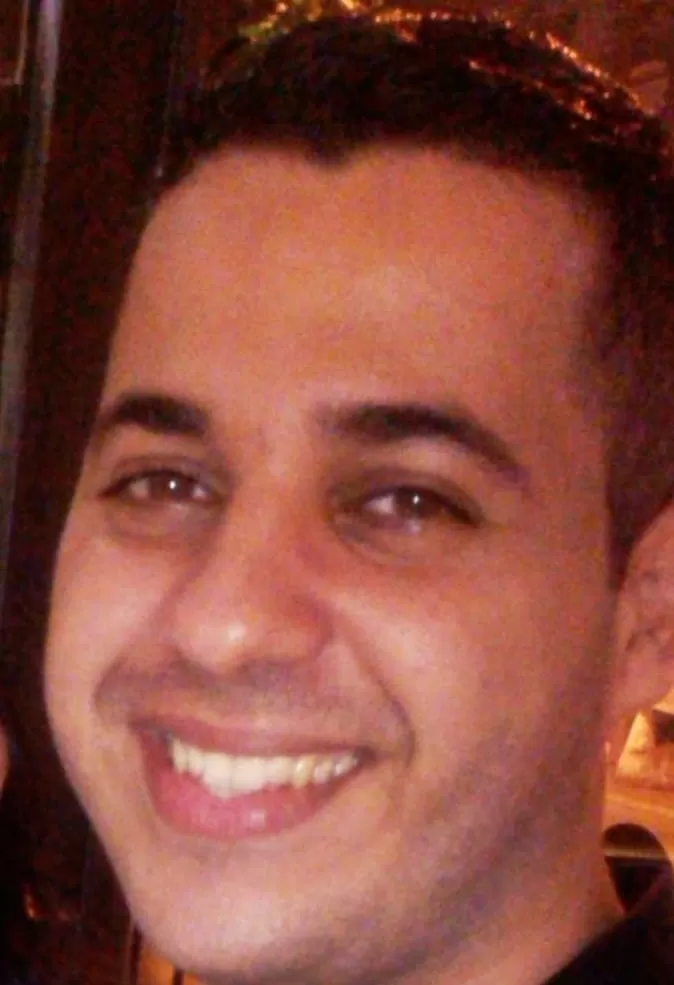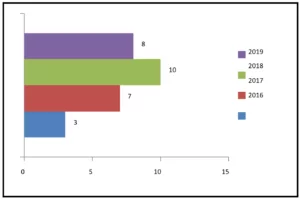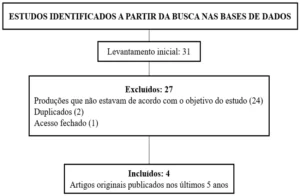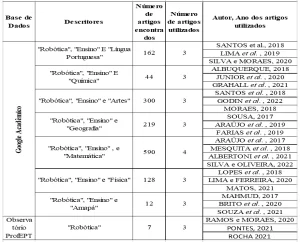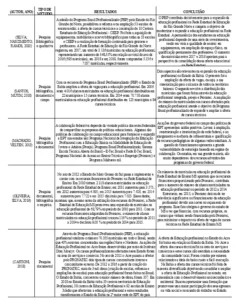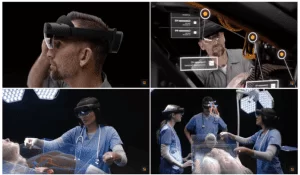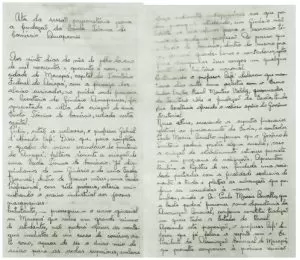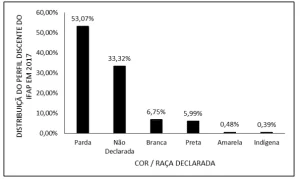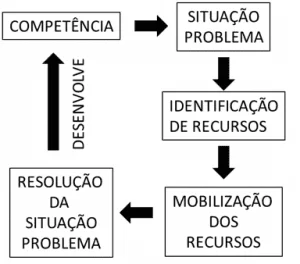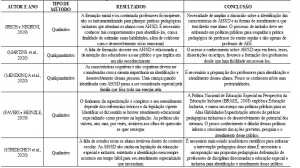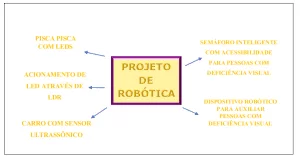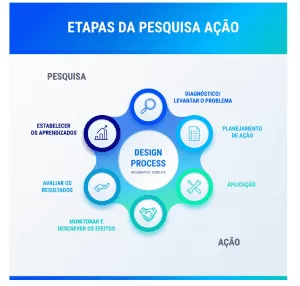ORIGINAL ARTICLE
BUSQUET, Leandro Martins Cota [1]
BUSQUET, Leandro Martins Cota. Pierre Bourdieu: Contributions to the reading wheels in the university library. Revista Científica Multidisciplinar Núcleo do Conhecimento. Year 05, Ed. 12, Vol. 11, pp. 20-25. December 2020. ISSN: 2448-0959, Access link: https://www.nucleodoconhecimento.com.br/education/reading-wheels
SUMMARY
This article praises the reading wheel as a category of central analysis of research and collective transformation of reality. Several reading and culture possibilities are presented. The article advocates the art of reading as favorable to the construction of a possible citizenship. Bourdieu’s contributions to the higher education system and especially to reading wheels are emphasized. Thus, according to the French sociologist, the dominant culture interferes by frustrating popular cultures in academia. He states that there are aspects concerning power through four capitals: economic, social, cultural and symbolic, in addition, it signals what he calls the field and habitus as intentional senses or not. This article draws a parallel with the university library as a promoter of dialogue and the reading wheels as collaborators in the process of building a theoretical-methodological framework for the students of this “field”. Another parallel is drawn between the reading wheels and the Bourdieusian theory by recognizing the librarian as a mediator of this process in which neutrality does not exist. Inferences are promoted between the thoughts of the French sociologist, the reading wheels and the university library. It concludes that there are several antagonistic projects of sociability and the academic community, especially students, are agents of social transformation.
Keywords: Reading, Pierre Bourdieu, Reading wheels, University library, Corporate transformation.
1. INTRODUCTION
Currently reading has become the central analysis category of many scholars. It is known that through this art emerge conditions of meaning and resignification of the social reality in which one lives. Thus, this movement contributes not only to an immediate differentiated look, but also to collective constructions of knowledge that overcome a linear view of culture. The image that is seen of oneself, the other and the world begins to present multiple possibilities of intervention, that is, a collaborative cognitive capacity that prioritizes the sharing of ideas.
In these intricacies, reading can also be understood as a facilitator of human communication by strengthening and expanding bonds. Sometimes this association occurs in a seemingly intimate way, that is, author and reader only. In other situations, the link occurs in a community way. One cannot overcome the other because it is taken into view that both contribute to the construction of a possible citizenship. The personal and social growth that is acquired by this practice is something historical and immeasurable if we consider that each social agent offers to his “i” and to the community in which there is the emersão of various elements, namely: cultural, social, political, economic, philosophical, artistic, psychic, among others.
From this explanation, it is necessary to briefly unveil the guiding principle that underlies Pierre Bourdieu’s basic assumptions with regard to education. It is emphasized that every theory has its limits and possibilities, but here we are interested only in contributions. In this specific case, it will be advantageous to create a dialogue with university education, because the thoughts of the French sociologist do not end in themselves, but rather favor this unfolding, when they take into view their critical view of the epistemological horizon present.
2. BOURDIEU THEORIES: A NECESSARY DIALOGUE FOR THE EDUCATIONAL PERFORMANCE OF THE LIBRARIAN AT THE UNIVERSITY
The French sociologist understands the individual as a distinct being endowed with instrumentality from countless places, such as their own families and their cultures. Roughly speaking, the author in question addresses some axes that deserve to be highlighted: economic capital, social capital, cultural capital and symbolic capital. Economic capital corresponds to income for the maintenance of life, social capital could be understood today as a kind of networking or a support network, cultural capital would be concerning all training acquired within the school, something more formal. Symbolic capital would be a kind of status, that is, a great notoriety.
However, in drawing a parallel with university education, Pierre Bourdieu (2002) offers us dialectical conditions of understanding of all this aparato by praising the possibility of different cultures and how behaviors and knowledge can be influenced by a so-called dominant intentionality. In this way, the French sociologist highlights it and goes further, by warning about what is camouflaged in a possible academic frustration or in the alignment of what is intended to be ratified as something natural. Often this is produced and reproduced in a totally unconscious way by those who receive it, but in all this there is a meaning. According to the author:
The culture of the elite is so close to the school culture that children originating from a small bourgeois environment (or, a fortiori, peasant and workers) cannot acquire, if not painfully, what is inherited by the children of the cultivated classes: style, good taste, talent, in summary, these attitudes and abilities that only seem natural and naturally required of the members of the cultivated class , because they constitute the “culture” (in the sense employed by the ethnologists) of this class. Not receiving from their families anything that can serve them in their school activity, other than a kind of empty cultural goodwill, the children of the middle classes are forced to expect everything and receive everything from school, and subject, on top of that, to be reprimanded by the school for their conduct by other “schoolchildren”. (BOURDIEU, 2002, p. 55)
In this aspect, it is understood that the author calls them “fields” as spaces of political disputes and habitus as a psychic archetype acquired and incorporated in his way of life according to the context in which he is part. In this way, the social agent is unique. According to Bourdieu and Passeron (1982) the school is approached as a locus that is not neutral; this supposed impartiality is a fallacy.
By bringing this question to the university and more precisely to the university library as part of the triad teaching, research and extension are notorious the correlations of existing forces. The information professional, more precisely the Librarian who works in university should have a mediating and critical posture in order to dialogue with the real. It is his praxis that will demonstrate his instrumentality and also “uncover” what is put as something natural. Assess in your “field” whether it really meets the needs of users in an educational bias and, moreover, in which “field” it finds itself makes all the difference in understanding users of university libraries while other agents of corporate transformation.
3. THE READING WHEELS AND THE BOURDIEUSIAN THEORY
No! The Librarian is not neutral, because both he and his “field” of work are entreentresof values that add up to those of the university as a whole. There are several social agents and each with his theory. That’s normal. However, enabling a means in which these differences can be debated in a democratic and pluralistic space is at the heart of the issue. Here are the reading wheels as facilitators of exposure of the various types of languages and various agents who can feel comfortable to express their constructs.
In this respect, the reading wheels would have as a fundamental presupposition to foster a theoretical-methodological framework until then asleep, where the students are the main catalysts of this “field”. The primary objective of every university and its respective libraries is to serve its academic community and the external public. They are the voices, the “thermometers” that act and reflect what happens in society as a whole. It is up to the librarians, in the reading wheels, to know how to interpret and give space to all this movement that is procedural and dialectical.
This attitude goes against the thought of Bourdieu (1996) to the extent that he strongly attacks the social inequalities that are produced, reproduced and generate a “multifaceted” society. In this context, the core of the issue is camouflaged in several stigmatized and stigmatizing layers in expressions such as: “you are a donkey”, “I don’t know how you got approved at a university”, “only entered because you are a quotaholder”, “are you studying for what?”, “will you study eternally?”, “your place is not there”, “the university is not for you”, among so many statements and pejorative questions.
It is likely by an effect of cultural inertia that we continue to take the school system as a factor of social mobility, according to the ideology of the liberating school, when, on the contrary, everything tends to show that it is one of the most effective factors of social conservation, as it provides the appearance of legitimacy to social inequalities, and sanctions the cultural heritage and the social gift treated as a natural gift (BOURDIEU , 1998, p. 41).
Thus, the reading wheels serve to denaturalize this dominant bias, desquamify this varnish and recognize where these voices arise and, in addition, acquire a consistent positioning as a social agent. Someone with teleological capacity, belonging to a society and who (unfortunately) is inserted in a neoliberal context that tries to keep everything as it is. However, non-conformity, the unveiling of reality, the interpretation of studies and reading possibly contribute to the formation of a full citizen and aware that the context can be changed.
4. FINAL CONSIDERATIONS
Understanding and identifying the correlations of existing forces in a field is often not an easy task, but we do not need to take up this responsibility as education professionals. Apparently, a reading wheel is a procedure that many consider only as a mere interaction where reading would be stigmatized as something to pass time or study in a lighter way. This can be a trap for many who take risks, get stuck in their moorings and later find it difficult to get out.
By having as premise the thoughts of Bourdieu we can draw a parallel and infer how the reading wheel while an educational procedure would have the ability to unseethe senses, intentionality, the various antagonistic “fields” and, with this, several projects of sociability that are in constant dispute. As reading is not limited only to the printed scope, everything becomes indicative of reflection: images, music, films, photographs, discourses, constructions, monuments… in short, every human expression.
As neutrality does not exist, the essence of facts can be masked, but not hidden for those who intend to unravel and problematize reality in a procedural and dialectical way. In this way, the reading wheels could contribute to the analysis and, moreover, foster the desire for debate. In a university and, more precisely, in a university library this brings down the idea that library is a space of silence. The books and the various documents contained in these spaces already talk to each other, in harmony or not (due to the diversity of theories) and social agents, the academic community — especially students — should also be present in this movement.
REFERENCES
BOURDIEU, P.; PASSERON, J.-C. A reprodução: Elementos para uma teoria do sistema de ensino. Trad. de Reynaldo Bairão. Rio de Janeiro: Francisco Alves,1982.
_____. Razões práticas: sobre a teoria da ação. Trad. de Mariza Corrêa. Campinas, SP: Papirus, 1996.
BOURDIEU, Pierre. O Poder Simbólico. Rio de Janeiro: Editora Bertrand Brasil S.A, 1989.
_____. Escritos de Educação. Petrópolis: Vozes, 1998.
_____. A escola conservadora: as desigualdades frente à escola e à cultura. In: NOGUEIRA, M. A.; CATANI, A. (Orgs.). Escritos da educação. Petrópolis: Vozes, 2002. p. 229-37.
[1] Master in Information Science, Graduated in Librariany and Documentation and Graduated in Social Work.
Submitted: December, 2020.
Approved: December, 2020.
